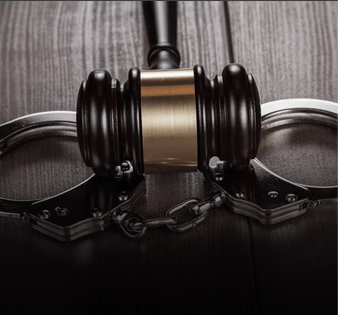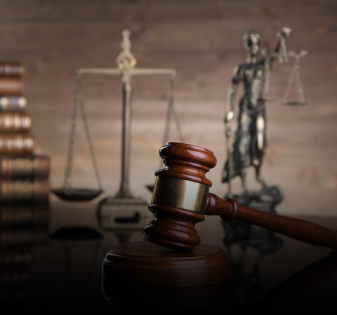Experienced Defense Attorneys In Central Virginia
Adam Jurach, Brian Tacey, and Tony Quitiquit all previously served as prosecutors and now use that experience helping people charged with:


Richmond’s Trusted Full Service Law Firm
The law firm of Jurach, Tacey & Quitiquit is a full service law firm which is located in the metro Richmond area. Obtaining the best results for our clients requires aggressive and experienced legal representation at every stage of the criminal case from the pretrial investigation, bond hearings, arraignment, disposition hearings, evidentiary motion hearings, through a jury trial.
Adam Jurach, Brian Tacey, and Tony Quitiquit all previously prosecuted cases in Commonwealth Attorneys Offices. After prosecuting we went into private practice, and eventually formed Jurach, Tacey, & Quitiquit. We take our experience from courtrooms across Virginia to help clients going through the legal process.
Our goal is to provide our clients with quality legal services in a timely and effective manner at a reasonable cost. We offer reasonable fixed fee arrangements and accept major credit cards.
How Does The Bail Bond System Work?
One of the most frequent questions we get asked at Jurach, Tacey and Quitiquit is related to the bond procedure. The bail bond system is designed to allow a defendant to be released from jail, pending trial. The defendant is released with a conditional financial guarantee with the court for the defendant’s future court proceedings.
When a person is arrested, they will be taken to a local jail for booking. During the booking process, a magistrate will decide if the defendant will be released on bail. After arrest, there are three release options for the defendant: release on their own personal recognizance, cash bail, or surety bond.
- Personal recognizance is typically used for minor offenses, and when a defendant has a limited record. With a personal recognizance, the defendant only has to sign a promise to appear in court.
- Cash bail is when the total amount of the bond in cash is paid to secure the release of the defendant. If the defendant makes all of their court appearances, the bond is returned to the person posting it. If the defendant fails to appear for court, the entire bond is forfeited.
- A surety bond is a contract between the court and the bail bondsmen. The bondsmen will post the full amount of the bond. The defendant or family will typically pay a percentage of the total amount to the bondsmen. After the bond is posted, the defendant is released on bail pending trial.
How Much Time am I Facing (Possible Penalties)?
If you are charged in the Commonwealth of Virginia, you will either be charged with a traffic infraction, misdemeanor or a felony crime. Infractions do not face the possibility of jail, but may include fines, points on your license, and lead to license suspension. Misdemeanors face the possibility of jail sentences and substantial fines. Felony crimes are the most serious crimes with lengthier sentences that can include long prison terms, severe fines, and loss of civil rights. Both a misdemeanor and felony conviction will also result in you having a permanent criminal record.
What Do I Do If I’m Charged with A Felony?
In Virginia, there are six classes of felonies. When charged with a felony, you need to understand how felonies are classified and sentenced in Virginia, so that you know the possible sentences you could face. You should also contact an experienced criminal defense attorney who can help you build your defense. Even if you believe that you are guilty of the crime you are charged with committing, you could have many procedural, constitutional, and other defenses that could result in the charges being dismissed or reduced to a less serious offense—maybe even a misdemeanor.
What Types of Felonies are There?
In Virginia, there are six classes of felonies ranging from Class 1, which is the most serious, to Class 6, the least serious. Each classification has its own range of sentences. Some crimes can fall under more than one class. Here are the classifications of felonies that you could be convicted of:
Class 1 Felonies
- A conviction of a Class 1 crime comes with the harshest penalties. Examples of crimes that are classified as Class 1 crimes are capital murder and first-degree murder. If you are over 18 years old and not mentally incompetent, you could be convicted of capital murder and be sentenced to death. If you are charged with first-degree murder or another Class 1 offense, you could be sentenced to life in prison and fined up to $100,000.
Class 2 Felonies
- A Class 2 felony often involves intentional crimes, such as arson, kidnapping, aggravated malicious wounding, which is causing permanent and physical impairment to another person, murder in some situations, and burglary with a deadly weapon. The sentence can range from a minimum of 20 years in prison to a life sentence and a fine of up to $100,000.
Class 3 Felonies
- You could be convicted of a Class 3 felony for shooting or stabbing a person, attempting to poison someone, or certain drug crimes. Another common example of a Class 3 felony is malicious wounding—causing injury to a person with the intent of killing, disfiguring, or disabling him. A conviction can result in a prison sentence of 5 to 20 years and a fine not exceeding $100,000.
Class 4 Felonies
- Embezzlement, arson of an unoccupied building, prostitution, kidnapping, and manslaughter can result in a Class 4 felony conviction. The penalties range from 2 to 10 years in prison and a fine of up to $100,000.
Class 5 Felonies
- Crimes that fall within this classification include involuntary manslaughter, extortion, and battery. These are often considered “wobbler” crimes that could be charged as a felony or misdemeanor, depending on the circumstances of the crime. A felony conviction could result in a prison sentence of 1 to 10 years and a fine of up to $2,500.
Class 6 Felonies
- Class 6 felonies are the least serious felonies and are also considered “wobblers” that might result in a misdemeanor conviction. Examples of these crimes include animal cruelty, repeat larcenies, reckless endangerment, and violation of a court order. A sentence for a felony conviction could include one to five years in prison and a fine of $2,500.
Do I Need an Attorney If I Face Felony Charges?
Hiring an experienced criminal defense attorney is a must if you are being charged with a felony. With the help of an attorney, you may be able to get the charges dismissed, reduced to a lower classification of felony, or reduced to a misdemeanor. This is important not only for your sentence if you are convicted, but also for the rest of your life. A felony conviction can make it very difficult to be hired for certain jobs, to obtain a professional license, and to avoid other consequences that can make your life more difficult.
What Should I Do If I’m Charged with a Misdemeanor?
Many people do not realize the seriousness of being charged with a misdemeanor. However, if you were charged with a crime that is a misdemeanor, you should not take your charges lightly. You do not want to just plead guilty and take whatever plea is offered by the prosecutor. A misdemeanor is a criminal charge, and a conviction can literally affect your life forever.
What Is The Difference Between a Misdemeanor and a Felony?
Crimes are divided into two broad categories: misdemeanors and felonies. Whether a crime will be considered a misdemeanor or a felony will depend on its potential maximum sentence. A misdemeanor is a crime less serious than a felony and punishable by a fine and up to one year in jail. Prison time would be served in the county jail rather than a state prison when a person is convicted of a felony. Misdemeanors are more serious than infractions, which generally do not result in any jail time.
How Are Misdemeanors Classified?
In Virginia, misdemeanors are divided into four classes, with Class 1 misdemeanors being the most serious. Some crimes can be classified as either a felony or misdemeanor, depending on the facts of the crime, the value of the property taken, the victim’s status, and the number of prior offenses the person has been charged with. In addition to these four classes of charges, there is also an unclassified—or Class U—misdemeanor, that is used in rare cases. Having your charges reduced to a less serious classification can have a huge impact on the severity of the possible penalties you face and how it affects your life.
What Are Class 1 Misdemeanors?
A Class 1 misdemeanor is the most serious and common classification and can be very similar to less serious felonies. Crimes that are categorized as a Class 1 misdemeanor in Virginia include:
- Reckless driving.
- A person can be charged with reckless driving if he is driving 20 miles per hour over the maximum speed level or in excess of 80 miles per hour no matter what the posted speed limit is.
- DUI.
- If a person’s blood alcohol content is 0.08 percent or greater, he can be charged with driving under the influence of alcohol (DUI). Driving while intoxicated (DWI) is also a Class 1 misdemeanor offense and can involve being intoxicated on drugs.
- Petit larceny.
- This is the stealing of property, goods, and money and includes shoplifting. If the value of what is stolen is over $200, a person could be charged with a felony.
- Assault and battery.
- Assault is the intent to engage in a harmful or offensive contact even if the suspect had no criminal contact with the victim. Battery is actually causing physical, harmful contact.
- Domestic assault.
- Domestic violence involves committing an act against a family or household member that involves violence, force or threats, and causes the victim to suffer physical injury or fear of injury or harm.
Class 1 misdemeanors are punishable up to one year in jail, a fine not exceeding $2,500, or both of these punishments. In addition, some offenses, such as DUI, could involve loss of driving privileges and other penalties.
What Is a Class 2 Misdemeanor?
Class 2 misdemeanors are less serious than Class 1 crimes. Some of the crimes that fall within this classification are possession of drug paraphernalia, possession of Class IV drugs, and aggressive driving. The possible sentences include up to six months in jail and a fine of up to $1,000.
What Are Class 3, 4, and U Misdemeanors and Penalties?
Class 3 and 4 misdemeanors are less serious offenses, and the penalties do not include jail time. Examples of Class 3 misdemeanors include possession of Class V controlled substances and some property destruction. A person could be charged with a Class 4 misdemeanor for public intoxication or possession of a Class VI controlled substance. The sentences a person could face include:
- A maximum of $500 in fines for a Class 3 conviction
- A maximum of $250 in fines for a Class 4 conviction
Why Do I Need to Hire an Experienced Criminal Defense Attorney?
You do not want to try to represent yourself if you are charged with a misdemeanor offense. Besides facing hefty fines and a jail sentence, you will have a criminal record for the rest of your life. This can prevent you from obtaining a job, impact your immigration status, prevent you from obtaining a scholarship, and hamper your ability to obtain a loan.
How Can A Criminal Defense Attorney Help Me?
Even if you believe you are guilty, you could have defenses to the charges based on violations of your constitutional rights, improper police procedures in stopping and arresting you, or the improper collection of evidence against you. An experienced criminal defense attorney can help you in the following ways:
- Investigate your case, including interviewing witnesses, obtaining documents, and hiring an investigator if necessary
- Explain the charges against you, the possible sentence you face, and how the criminal defense system works
- Develop a defense strategy to fight the charges against you
- Negotiate a plea agreement for you if that is in your best interests
- Represent you at court hearings








